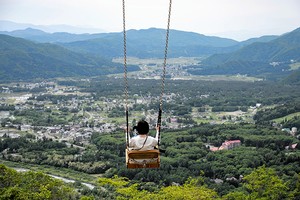REUTERS
November 28, 2024 at 11:20 JST
 Ukrainian President Volodymyr Zelenskiy addresses South Korean parliament via video link at National Assembly in Seoul, South Korea April 11, 2022. (Pool via REUTERS)
Ukrainian President Volodymyr Zelenskiy addresses South Korean parliament via video link at National Assembly in Seoul, South Korea April 11, 2022. (Pool via REUTERS)
SEOUL--South Koreans remain widely opposed to directly supplying arms to Ukraine, recent polls show, despite renewed international requests from Kyiv and allied capitals after North Korean troops were reported to be helping Russia.
Ukraine has asked Seoul for a range of weapons and Seoul has said it could consider such aid, depending on future steps by Russia and North Korea.
A Ukrainian delegation led by Defense Minister Rustem Umerov met South Korean President Yoon Suk Yeol on Wednesday, Yoon’s office said, amid media reports that the visit aimed to seek arms support.
"No to the South Korean government planning arms supply to Ukraine," read a banner held by a small group of protesters gathered outside Yoon’s office in the capital.
Both sides agreed to keep up sharing of information on North Korea’s dispatch of troops to Russia as well as the exchange of technology and weapons between the two, Yoon’s office said in a statement.
The delegation also met Seoul’s national security advisor Shin Won-sik and defense minister Kim Yong-hyun and discussed cooperation between Seoul and Kyiv.
Ukraine planned to send Seoul a detailed request for arms support including artillery and an air defense system, President Volodymyr Zelenskiy said in an October interview with South Korean broadcaster KBS.
A Western diplomat told Reuters that discussions behind the scenes focused on air defense systems designed to shoot down aircraft and missiles, but this month’s U.S. presidential election win by Donald Trump cast uncertainty over the talks.
Yoon, already battling with record low approval ratings over domestic scandals, faces wide opposition from the South Korean public to the idea of arming Ukraine, surveys have shown.
Most South Koreans viewed growing military ties between Pyongyang and Moscow as a threat, a Gallup Korea poll showed in October, but 82% opposed sending military aid, including arms.
"To the South Korean government, there will be fewer benefits for continuing to support (military aid) when there is little domestic support and the relationship with the next U.S government could deteriorate," said Yang Uk, an analyst at the Asan Institute for Policy Studies.
Yoon’s low approval ratings, along with little public backing for supply of weapons, are burdens sapping his mandate on foreign policy, he added.
The public, largely not sensitive to the seriousness of the war in Ukraine, is likely to focus on the downside in the event of the South’s direct involvement, Yang said.
Unlike neighboring Japan, which has also avoided directly arming Kyiv, South Korea is one of the world’s largest weapons exporters and has inked large, lucrative defense deals with Ukraine’s neighbors.
South Korea has provided demining vehicles, body armor, and other non-lethal aid for Ukraine and has not ruled out supply of weapons to Kyiv, especially after Seoul and Washington reported the dispatch of thousands of North Korean troops to Russia.
At home, the main opposition Democratic Party (DP) has criticized the government for not ruling out provision of weapons aid and urged it to seek parliamentary approval for such decisions.
The DP has a majority in parliament after a landslide victory in an April election, but experts say the president can bypass the body to supply lethal weapons to another country.
In an interview with Russia’s TASS news agency, Russian Deputy Foreign Minister Andrey Rudenko said ties between Seoul and Moscow would be "completely destroyed" if South Korea supplied arms to Ukraine.
Russia should first ask itself what it provides to North Korea in exchange for Pyongyang’s dispatch of troops and how it is threatening the security of South Korea, a senior South Korean foreign ministry official told a background briefing on Wednesday, when asked about the comments.
Seoul’s response depends on the actions of Russia and North Korea, the official added, speaking on condition of anonymity.




















A peek through the music industry’s curtain at the producers who harnessed social media to help their idols go global.
A series based on diplomatic documents declassified by Japan’s Foreign Ministry
Here is a collection of first-hand accounts by “hibakusha” atomic bomb survivors.
Cooking experts, chefs and others involved in the field of food introduce their special recipes intertwined with their paths in life.
A series about Japanese-Americans and their memories of World War II